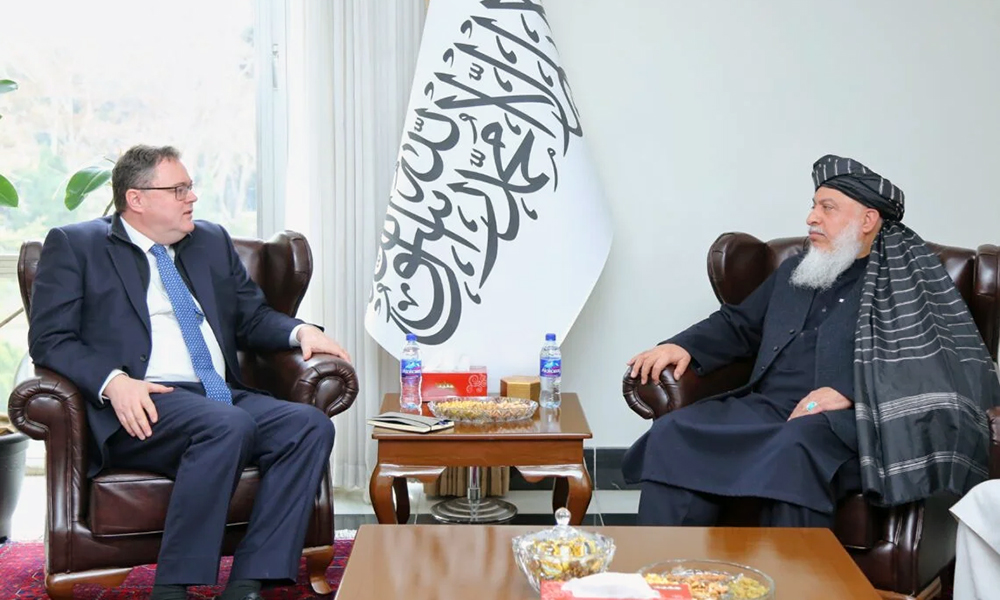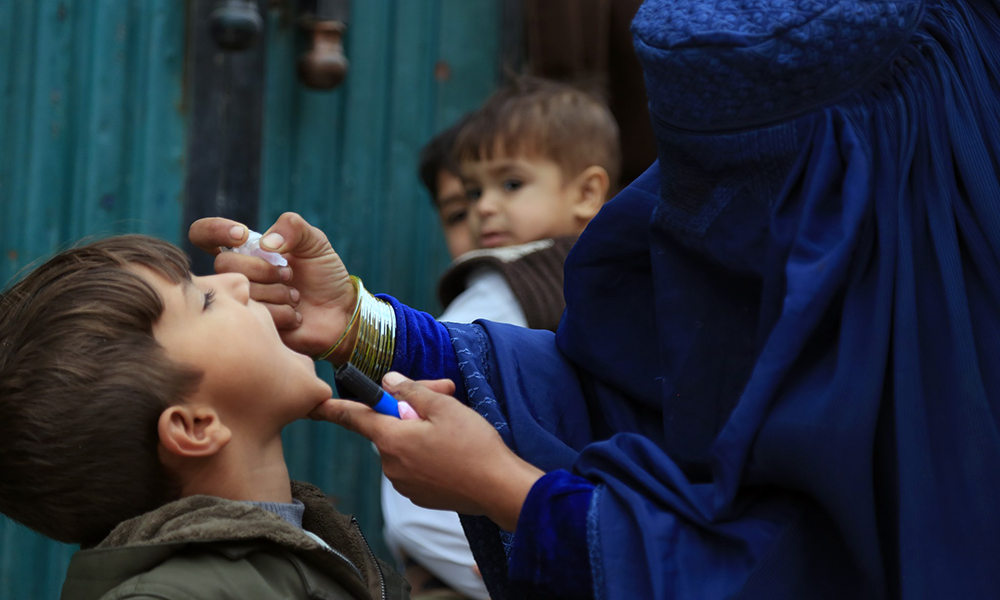Latest News
Foreign troops footprint leaves behind health and environmental issues

An investigative report has found that there has been a considerable increase in medical problems among communities that lived close to US military bases during Afghanistan’s 20-year war.
According to New Lines magazine, a marked increase in people suffering from skin, heart and digestive diseases have been observed among those living in close proximity to the former bases. In addition to this, the magazine found that the war had a devastating effect on people’s land.
“American forces have not paid attention to the devastating consequences of using bombs, harmful weapons, spreading chemical substances caused by throwing bombs and burning garbage on people's health, especially around their military bases in Nangarhar, Kandahar and Parwan provinces,” the report said.
A number of residents of these provinces told New Lines that two years after the withdrawal of troops, they still suffer from skin, cardiovascular and digestive diseases. They have also said that their land yields far less crops than in the past.
According to the report, the US military dropped more than 85,000 bombs in Afghanistan from 2001 to 2021, most of which contained an explosive called "RDX".
This substance has an adverse effect on the nervous system of humans. The United States Environmental Protection Agency has called this substance carcinogenic.
“The Taliban (IEA) government should start an investigation in this regard and, if possible, ask for help from international institutions in this matter; if this issue is confirmed, they should demand compensation from the United States of America,” said Asadullah Nadim, a military analyst.
In April 2017, US military dropped the most powerful conventional bomb ever used in combat — the GBU-43/B Massive Ordnance Air Blast, known unofficially as the “mother of all bombs,” or MOAB.
In addition, New Lines estimated that when more than 100,000 NATO and US forces were present in Afghanistan, they produced more than 400,000 kilograms of garbage per day, most of which was burned without any pollution control.
However, the Islamic Emirate says the 20-year military presence of the US and its allies in Afghanistan has caused problems to the people, and the IEA will request compensation at an appropriate time.
“Afghanistan has been the same in every occupation, they have been victims, their people's rights have been lost and they have been oppressed, they have been killed, injured and suffered various hardships; they were forced to migrate. The American occupation also had these problems, these problems must be compensated, we will definitely raise this at the right time, Inshallah,” said Zabihullah Mujahid, a spokesman for the IEA.
Latest News
Eight Afghan migrants die as boat capsizes off Greek island

Eight Afghan migrants died after a speedboat carrying migrants capsized off Greece's eastern island of Rhodes on Friday, the Associated Press reported.
Greek authorities said that the capsizing was the result of the boat’s maneuvering to evade a patrol vessel.
A total of 18 migrants — 12 men, three women and three minors — all Afghan nationals, were rescued, Greece's coast guard said Saturday. The dead were also from Afghanistan, it said.
Some migrants remained hospitalized, with one in critical condition, authorities said.
Two Turkish citizens, ages 23 and 19, were arrested as the suspected traffickers. The boat sank after capsizing, the coast guard said.
The sinking off Rhodes was the second deadly incident involving migrants in the past week.
Seven migrants were killed and dozens were believed missing after a boat partially sank south of the island of Crete over the weekend — one of four rescue operations during which more than 200 migrants were rescued.
Latest News
Norwegian Chargé d’Affaires meets with IEA deputy foreign minister
Welcoming the diplomat’s visit to Kabul, Stanikzai underscored the importance of political relations between Afghanistan and Norway, the foreign ministry said in a statement.

The Norwegian Chargé d’Affaires for Afghanistan, Per Albert Ilsaas, on Saturday met with IEA’s Deputy Foreign Minister for Political Affairs, Sher Muhammad Abbas Stanikzai, in Kabul.
Welcoming the diplomat’s visit to Kabul, Stanikzai underscored the importance of political relations between Afghanistan and Norway, the foreign ministry said in a statement.
In addition to focusing on bilateral political, humanitarian, and other pertinent issues, the two sides expressed hope that continued engagement would lead to constructive solutions to related issues.
This comes two weeks after the Foreign Ministry Spokesman Abdul Qahar Balkhi expressed disappointment regarding the decision by the Norwegian government to downgrade diplomatic relations with Afghanistan.
Balkhi said in a post on X that such decisions should not be linked with internal affairs of other countries.
“Diplomatic engagement is most effective when it fosters mutual understanding and respect, even amidst differing viewpoints,” he stated.
“Access to consular services is a fundamental right of all nationals. We strongly urge all parties to prioritize this principle in the spirit of international cooperation,” he added.
Latest News
A new polio vaccination campaign is set to launch in Afghanistan
Afghanistan and Pakistan are the only two countries in the world where polio has not been eradicated.

The “Afghanistan Polio-Free” organization announced that a new round of polio vaccinations will begin on Monday, December 23, in various provinces of Afghanistan.
The organization did not specify which provinces will be targeted or how long the vaccination campaign will last.
Afghanistan and Pakistan are the only two countries in the world where polio has not been eradicated.
On December 4, 2023, the World Health Organization (WHO) issued a statement reporting a 283% increase in polio cases in Afghanistan. According to the WHO, the number of positive environmental samples for wild poliovirus type 1 in Afghanistan in 2024 reached 84, compared to 62 cases in 2023.
The Ministry of Public Health claimed in November 2024 that no new cases of polio had been reported in Afghanistan for the year.
-

 Latest News5 days ago
Latest News5 days agoIndia hoping to import coal and marble from Afghanistan
-

 Sport4 days ago
Sport4 days agoZimbabwe’s opening ODI against Afghanistan abandoned
-

 World3 days ago
World3 days agoNorth Korean troops suffer 100 deaths, struggling in drone warfare, South Korea says
-

 Latest News3 days ago
Latest News3 days agoTwo horror accidents on Kabul-Kandahar highway leave 52 dead
-

 Latest News1 day ago
Latest News1 day agoAfghan men must stand with women to support viable future of country: US envoy
-

 International Sports4 days ago
International Sports4 days agoLanka T10: Kandy Bolts in at 4th spot in playoffs after thrilling day
-

 Sport3 days ago
Sport3 days agoAfghanistan crush Zimbabwe by 232 runs in second ODI
-

 Regional4 days ago
Regional4 days agoIran’s president to make rare visit to Egypt for D-8 summit

















